MercoPress. South Atlantic News Agency
Tag: Philip Hammond
-
Tuesday, August 1st 2017 - 07:24 UTC
PM May's office denies freedom of movement will continue once UK leaves EU
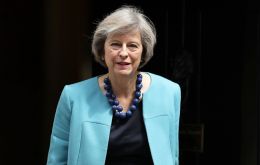
Suggestions that freedom of movement will continue after the United Kingdom leaves the EU are wrong, Downing Street has said. Last Friday, Chancellor Philip Hammond warned full controls could take “some time”, prompting speculation free movement may continue in all but name after the UK leaves in March 2019.
-
Monday, July 31st 2017 - 07:46 UTC
Open divisions on post-Brexit policy surface in the British cabinet

Allowing free movement of people after Britain leaves the European Union would not “keep faith” with the Brexit vote, the international trade secretary said, underling divisions in the government over the issue. Liam Fox told the Sunday Times that senior government ministers had not reached a consensus on retaining free movement of people for a transitional period, a proposal outlined by finance minister Philip Hammond on Friday.
-
Saturday, July 29th 2017 - 14:53 UTC
Hammond admits post-Brexit transitional deal up, but until general election in 2022

Any “transitional deal” in the period after Brexit must end by June 2022, the time of the next general election, Philip Hammond has said. But the chancellor said there must be “business as usual, life as normal” for Britons as the UK left the EU.
-
Thursday, July 27th 2017 - 10:29 UTC
UK expands 0.3% in second quarter, but it is a “notable slowdown” from last year
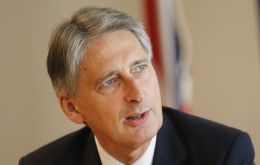
United Kingdom economic growth edged slightly higher in the three months to June, as a stronger service sector offset weaker manufacturing and construction. The Office for National Statistics (ONS) said the economy expanded by 0.3% in the quarter, up from 0.2% in the previous three months, but added there had been a “notable slowdown” from last year.
-
Saturday, July 22nd 2017 - 12:31 UTC
Hammond reportedly told Goldman Sachs he favors a Brexit lengthy transition period

Chancellor of the Exchequer Philip Hammond reportedly told the board of U.S. investment bank Goldman Sachs that he was pushing for a lengthy transition period after Britain leaves the European Union, a source familiar with the talks said. The source said Hammond made a presentation to the Goldman Sachs board on June 29 when CEO Lloyd Blankfein was in London for the annual board meeting.
-
Friday, July 21st 2017 - 09:02 UTC
Senior Tories support PM May and the removal of any plotter cabinet minister
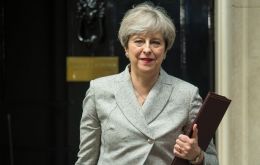
Theresa May has issued a warning to her Cabinet ministers that none of them is “un-sackable”. The Prime Minister’s comment comes after she was forced to upbraid senior colleagues after an outbreak of vicious briefing against Chancellor Philip Hammond.
-
Tuesday, July 18th 2017 - 05:43 UTC
Complicated start for Brexit discussion in Brussels; PM May orders cabinet to stop infighting
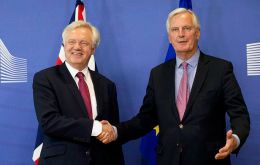
Negotiations regarding Britain's exit from the European Union resumed on Monday in Brussels, and Britain's prime minister warned her feuding cabinet to stop its infighting. David Davis, the Britain's Brexit secretary, began four days of talks with EU chief negotiator Michel Barnier in Brussels, but flew home to London after only three hours of negotiation.
-
Monday, July 17th 2017 - 04:49 UTC
Hammond admits Brexit is holding back investments in UK

Chancellor of the Exchequer Philip Hammond has told the BBC's Andrew Marr Show that businesses are holding off from investing in the UK because of uncertainty about Brexit. The interview came a day before the second round of negotiations which take place this Monday in Brussels.
-
Wednesday, July 5th 2017 - 07:18 UTC
Hammond tells business leaders that jobs and prosperity are first priorities of Brexit negotiations
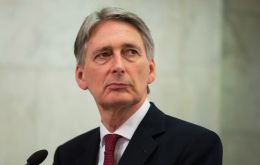
Brexit is not a dominant issue for European Union countries, Chancellor of the Exchequer Philip Hammond acknowledged as he called for jobs and prosperity to be the first priority in the negotiations. The Chancellor told business leaders that the UK had to remember that Brexit was “just one among many challenges” facing the other EU members.
-
Sunday, April 23rd 2017 - 06:51 UTC
UK government recovers the £20.3bn spent bailing out Lloyds Banking Group
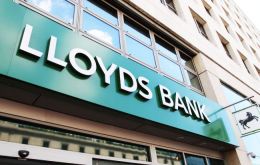
The £20.3bn spent bailing out Lloyds Banking Group during the financial crash has been re-paid in full, UK chancellor Philip Hammond has said. Nine years after the government bought 43.4% of Lloyds, the taxpayer has now got slightly more - £20.4bn - back.
